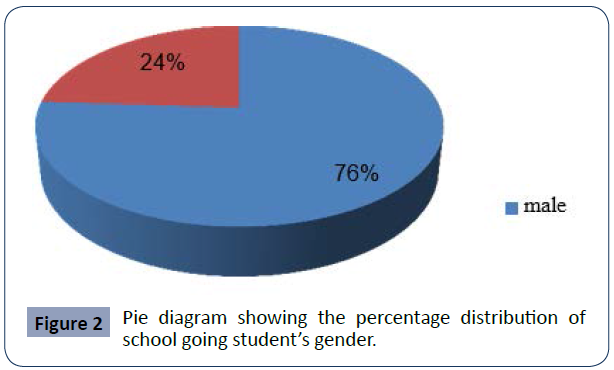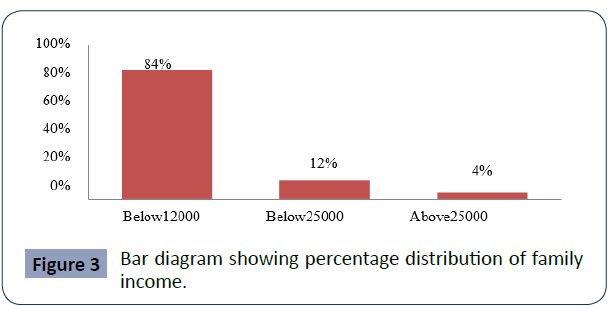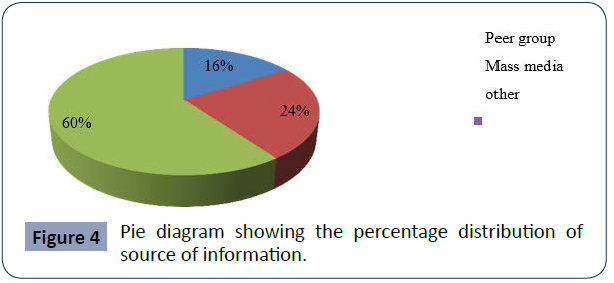Keywords
HIV/AIDS; STD/STIs; Structured teaching programme
Background of the Study
According to WHO
India is the 3rd (third) epidemic country for HIV/AIDS [1]. HIV continues to be a major global public health issue, having claimed more than 32 million lives so far. In 2018, 770 000 people died from HIV. There were approximately 37.9 million people living with HIV at the end of 2018 with 1.7 million people becoming newly infected in 2018 globally. 62% of adults and 54% of children living with HIV were receiving lifelong antiretroviral therapy (ART) in 2018. Global ART coverage for pregnant and breastfeeding women living with HIV is high at 82% [2].
Key populations include
Men who have sex with men, people who inject drugs, people in prisons and other closed settings, sex workers and their clients, and transgender people. They are at increased risk of HIV irrespective of epidemic type or local context. Between 2000 and 2018, new HIV infections fell by 37%, and HIV-related deaths fell by 45% with 13.6 million lives saved due to ART in the same period. This achievement was the result of great efforts by national HIV programmes supported by civil society and a range of development partners [2].
HIV/AIDS in India
The Government of India estimates that about 2.40 million Indians are living with HIV with an adult prevalence of 0.31%. According to 2017, 2.1 million people living with HIV.0.2% adult HIV prevalence (age from 15 to 49 yrs.) 88,000 new HIV infection. 69,000 AIDS related deaths and 56% adults on antiretroviral treatment [1].
There are many research studies done on HIV/AIDS by different researchers. From their studies the conclusion was knowledge among the people were poor and structured teaching programme can help to improve the awareness. Some studies are-Kamble Asmita Lakamss, Veena Barkat Surindar, Lawrelce conducted a study to “assess effectiveness of structured teaching on the knowledge of HIV/AIDS among adolescent in selected schools, Ludhiana, Punjab” on 12 December 2017. A random sampling was used for the data collection. A self-structural questionnaire was prepared to assess the knowledge of HIV/AIDS among adolescents. In this study 100 sample was used. Result shows that mean posttest knowledge score of adolescents regarding HIV/ AIDS was the higher 35.8 compared to mean pre-test knowledge score 15.55 of adolescents. 70% adolescents had below average score and only 30% had above average score regarding HIV/ AIDS and in posttest all adolescents had good knowledge score regarding HIV/AIDS [3].
Joanna Jhon conducted the study India was the 2nd highest number of people living with HIV/AIDS. “Effectiveness of structured teaching programme regarding HIV/AIDS among the students at selected JR college in Aurangabad, Maharashtra, India”, in 2016.
Findings related to association: The association of respondent’s knowledge score is calculated by chi-square test & t-test. The score of chi-squares is 105.94. t-test value is 19.77 [4].
L. P. Meena, SK Panday, et al. conducted a study in King George Medical University, Lucknow, Uttar Pradesh, India on 29th September 2012 to “Assess the effect of structured teaching programme regarding knowledge on mode of transmission and prevention of HIV/AIDS among health care members, patient and care-givers”, The results shows-sexual transmission- 63.85,contaminated syringe-10.8%,others-8.8%, notknown-8.8% [5].
P. Lal, AnitaNath, S. Badhom & Gopal. K Ingle conducted “A Study of awareness about HIV/AIDS among senior secondary school of Delhi”. The study was conducted over a period of 3 months from 1st (first) August 2005 to 31st October 2005. The study shows that –there were 48 govt. school (23 boys’ school & 23 girls’ school & 2 co -educational school). The students were administered a predesigned perform which included multiple choice questions. It results shows that All the students had heard of HIV/AIDS at though only 51.4% were able to write,the full form of AIDS &only 19.9% were able to write the full form of HIV [6].
According to WHO, adolescent group are the high risk for HIV/ AIDS.2 HIV/AIDS in West Bengal is higher, and the states bears about 6% HIV burden of India [7].
According to NACP-IV, Components, in components 2: Expanding IEC (Information Education and Communication) services for (a) general population and (b) high risk groups with a focus on behavior change and demand generation. It put emphasis on increasing awareness among general population, particularly women and youth [8].
Problem statement
Effectiveness of structured teaching programme on knowledge and attitude towards HIV/AIDS among school going students in selected school, Kolkata.
Objectives:
• To assess the pretest knowledge and attitude about HIV/AIDS among school going students.
• To assess the posttest knowledge and attitude about HIV/AIDS among school going students.
• To determine the effectiveness of structured teaching programme about HIV/AIDS among school going students.
• To find out the relation between knowledge and attitude among school going students.
• To find out association between level of pretest knowledge and attitude of school going students with selected demographic variables.
Operational definition: Effectiveness - It refers to the extended to which the structured teaching programme has achieved its desired result as measured by the significant increase in knowledge of school going students. Structured teaching programme. In this study it refers to a systematically planned teaching strategy designed to provide information on HIV/AIDS in relation to knowledge and attitude. Knowledge-In this study refers to the written response of school going students regarding HIV/AIDS assessed by structured knowledge questionnaire. Attitude-In this study attitude refers to the believes regarding HIV/AIDS among school going students.
School going students: It refers to students who read in class VIII.
Hypothesis:
H1: There is a significant difference between pretest and posttest level of knowledge regarding HIV/AIDS at 0.05 level of significance.
H2: There is significant difference between pretest and posttest level of attitude regarding HIV/AIDS at 0.05 level of significance.
H3: There is a significant association between the pretest knowledge score regarding HIV/AIDS among school going students.
Review of literature related to knowledge towards HIV/AIDS
Maria C Cabezas, Marco Fornasini, Adelin Albert conducted a cross sectional study to assess knowledge about HIV/AIDS transmission and prevention measures in company workers in Ecuador shows incorrect knowledge about HIV/AIDS transmission were found in 49.1% of subjects. Incorrect knowledge about preventive measures was found among 32.9% of respondents [9].
Edward Nhetiah-Amponsah,Gloria Afful-Mensah conducted a study on review of HIV/aids awareness and knowledge of preventive method in Ghana, reveals that there is almost a universal awareness of HIV/AIDS in Ghana although there are still some deficiencies in comprehensive knowledge of the epidemic. Male respondents between 15-24-year age is more aware of preventive measures than their female counterparts. There is a need to intensify the knowledge and preventive methods of HIV/ AIDS especially among the women in their reproductive age [10].
Pratibha Gupta, Fatima Anjum, Zeashan Haider Zaidi conducted a cross sectional study on knowledge about HIV/AIDS among secondary school students, shows that regarding knowledge about mode of transmission of HIV/AIDS among girls’ student, 95.1% of them told that it is through unprotected sex. A total of 75.8% students said that it was transmitted from mother to child [11].
Armita Shahesmaeili, Roya Safari Faramani, Razieh Khajehkazemi, Hamid Sharifi conducted a Systematic review to assess knowledge and practice of HIV/AIDS among key population at risk for HIV infection shows that mean knowledge score was ranged from 40.29-50.6. Moreover, the percentage of those with high level of knowledge varied between 6 and 45.5 [12].
Review of literature related to attitude towards HIV/AIDS
Geraldine J Kikwasi, Sophia Lukwale conducted a study on 1st year students’ attitude towards HIV/AIDS shows that a negative attitude toward HIV/AIDS was noticeable in male compared to female though the difference was not statistically significant. This study also concludes that significant levels of stigma and discrimination against people living with HIV/AIDS still exist [13].
Michal Platten, Ha N Pham, Huy V Nguyen conducted a cross sectional quantitative studies. where he found that there were several gaps in knowledge of HIV including the categories of HIV related basic sciences, prevention and care and treatment. knowledge of stigma and discrimination was a significant positive predictor of general no prejudicial attitude to HIV/AIDS and nondiscriminatory attitude to HIV/AIDS at work [14].
Fawat Khan conducted an exploratory study to find perception towards HIV/AIDS shows that the level of attitude on HIV was 56%, however this was mere knowledge of HIV as it did not correspond with factual knowledge on basic facts of the same [15].
Review of literature related to structured knowledge questionnaire: LP Meena, SK Pandey et al [16] conducted a study to assess the effect of structured teaching program regarding knowledge of mode of transmission and prevention of HIV/AIDS among health care member, patient, and caregiver.
Atul Kumar, Mohalingam Venkateshan, selvi Conducted a quasiexperimental one group pretest- posttest research design on effectiveness of structured teaching program regarding knowledge regarding sexual health among young adults shows that the mean knowledge score was significantly from pretest to posttest where the mean difference was the demographic variables like age, education, marital status had significant association with the posttest knowledge score [17].
Manasi sukla, Mallika Fonseca, Prosad Deshmukh conducted a study to assess effectiveness of structured teaching program on cervical cancer among the women, shows the knowledge on cervical cancer among women in pretest, among 60 samples 7(11.6%) sample have poor knowledge, 52(86.7%) samples have average knowledge, and 1 women (1.7%) having good knowledge. Further in posttest among 60 samples, 5(8.4%) samples having good knowledge, 55(91.6%) samples having excellent knowledge.
Sample: In final study the sample consists of 25 school going students at Jagriti Vidyapith High School.
Sampling technique: Non-probability convenient sampling (Tables 1-5).
| knowledge |
Pre-test |
Post-test |
| Level of knowledge |
score |
Frequency |
Percentage (%) |
Frequency |
Percentage (%) |
| Excellent |
13-16 |
0 |
0% |
13 |
52% |
| Satisfactory |
9-12 |
3 |
12% |
12 |
48% |
| Fair |
5-8 |
21 |
84% |
0 |
0% |
| Poor |
0-4 |
1 |
4% |
0 |
0% |
Table 1 Frequency and percentage distribution of students by pre-test post-test knowledge score.
| Attitude level |
Pre-test |
|
Post-test |
| Level of attitude |
Score |
Frequency |
percentage |
Frequency |
percentage |
| Positive attitude |
11-20 |
21 |
84% |
25 |
100% |
| Negative attitude |
<11 |
4 |
16% |
0 |
0% |
Table 2 Frequency and percentage distribution of students by pre-test post-test attitude level towards HIV/AIDS.
| Attitude Score |
Mean |
Mean Difference |
SD |
t-value |
| Pre-test |
12.84 |
2.68 |
2.297 |
6.76 |
| Post-test |
13.88 |
|
|
|
| |
|
|
2.73 |
|
Table 3 Mean, Mean difference, SD and ‘t’ value of pre-test and post-test attitude score of students.
| S. no |
Demographic variable |
Attitude |
≥ median (2.68) |
Df |
Table value |
2 |
Remark |
| 1 |
Age |
|
|
2 |
5.99 |
- |
Not significant |
| 13-14 |
5 |
8 |
|
|
|
|
| 15-16 |
7 |
5 |
|
|
|
|
| 17-18 |
0 |
0 |
|
|
|
|
| 2 |
Gender |
|
|
2 |
5.99 |
- |
Not significant |
| Male |
12 |
7 |
|
|
|
|
| Female |
0
0 |
6
0 |
|
|
|
|
| Other |
|
|
|
|
|
|
| 3 |
Family |
|
|
2 |
5.99 |
- |
|
| income Below12000 |
10 |
11 |
|
|
|
Not significant |
| Below25000 |
1 |
2 |
|
|
|
|
| Above25000 |
1 |
0 |
|
|
|
|
| 4 |
Sources of information |
|
|
2 |
5.99- |
0.697 |
Not significant |
| Peer group |
2 |
2 |
|
|
|
|
| Mass Media |
2 |
4 |
|
|
|
|
| Other |
8 |
7 |
|
|
|
|
Table 4 Association between pretest attitude and demographic variable.
| S. no |
Variable |
Mean |
SD |
r-value |
t-value |
| 1. |
Knowledge |
6.68 |
1.73 |
0.13 |
6.76 |
| 2. |
Attitude |
12.84 |
2.297 |
|
6.76 |
Table 5 Co -relation Co-efficient and their significance existing between knowledge and attitude towards HIV/AIDS.
Reliability of the tool: Reliability of tool was done by Split Half Method and Cronbach’s Alpha Method. The co- relation of demographic questionnaire is 100%. The co-relation co-efficient of knowledge questionnaire is r=0.91. The co-relation co-efficient of attitude questionnaire is r=0.6. So, the tool is reliable (Figures 1-4).

Figure 1 Pie diagram showing the percentage distribution of school going student going student’s age.

Figure 2 Pie diagram showing the percentage distribution of school going student’s gender.

Figure 3 Bar diagram showing percentage distribution of family income.

Figure 4 Pie diagram showing the percentage distribution of source of information.
Major findings
Section I:
Findings related to demographic characteristics of school going students.
• Most of the students (84%) belong below Rs.12000 family income,12% students belong below Rs.25000 and 4% students belong above Rs.25000.
• Most of the students about 52% were between 13-14 years and 48% were between 15-16 years.
• About 58% information regarding HIV has been got from mass media, 39% information has been collected from peer groups and 3% information has been collected from other sources.
Section II:
Findings related to assessment of knowledge towards HIV/AIDS among school going students.
• In pre-test examination about 84% students’ performance is poor, 12% students’ performance is in satisfactory level and for 4% students’ performance is poor.
• In post-test examination about 52% students’ performance is excellent and for 48% students’ performance is satisfactory. Section III:
Findings related to assessment of school going students’ attitude towards HIV/AIDS.
• ‘t’ value for both pre-test and post-test on attitude towards HIV/ AIDS is 6.76.
• Most of the students about 84% have positive attitude and about 16% students have negative attitude towards HIV/AIDS in pre-test level.
• All the students (100%) have positive attitude towards HIV/AIDS in post-test level.
Section IV:
Findings related to correlation between the school going students’ knowledge and attitude.
• There is no significant co-relation between knowledge and attitude of school going students.
Recommendation
• A similar study can be replicated with a larger sample for making generalization.
• A comparative study can be replicated with adolescence in two different setting.
• A quasi-experimental study with pre-test post-test control group design for assessment of the effectiveness of structured teaching programme.
• A similar study can be replicated with more demographic variables.
40907
References
- Nketiah-Amponsah E, Afful-Mensah G (2013) A review of HIV/AIDS awareness and knowledge of preventive method in Ghana. Afr J Reprod Health
- Cabezas MC, Fornasini M, Dardenne N, Borja T, Albert A () A cross- sectional study to assess knowledge about HIV/AIDS transmission and prevention measures in company workers in Ecuador. BMC Public Health 13: 139
- Hooshyar SH, Shahesmaeili A, Faramani RS, Khajehkazemi R, Nasirian M, et al. (2014) Knowledge, Attitude and Practice of HIV/AIDS: A systematic review among key populations at risk for HIV infection in Iran. BMJ open.
- Gupta P, Anjum F, Bhardwaj P, Srivastav JP, Zaidi ZH (2011) Knowledge about HIV/AIDS among secondary school students. N Am J Med Sci 5: 119-123.
- Kikwasi GJ, Lulwale S, Mwageni EA (2017) A study of First Year Students Attitude towards HIV and AIDS. Glob J Health Sci 9: 117.
- Platten M, Pham HN, Nguyen HV (2014) Knowledge of HIV and factors associated with attitudes towards HIV among final year medical students at Hanoi Medical University in Vietnam. BMC Public Health 14: 265
- Fawad K (2014) An exploratory study to find the perception towards HIV/AIDS in Pakistan. Procedia Soc Behav Sci 172: 81-87
- Meena LP, Pandey Sk, Rai M, Bharti A, Sundar S (2012) Knowledge, Attitude and Practices (KAP) study on HIV/AIDS among HIV patients, Care Givers and General Population in North-Eastern part of India. Int J Med Sci Public Health 2: 36-42.
- Kumar A, Venkateshan M, Selvi (2016) Effectiveness of structured teaching programme on knowledge regarding sexual health among young adults. Int J Res Med Sci.
- Bayamma N (2004) A study to assess the effectiveness of structured teaching programme on cervical cancer among the women at Venkatachalam, Nellore. Narayana Nurs J.
- John J (2016) A quassi-experimental study to assess the effectiveness of structured teaching programme regarding HIV/AIDS among the student of selected Jr. college in Aurangabad city. IJNH 2: 526-534.









